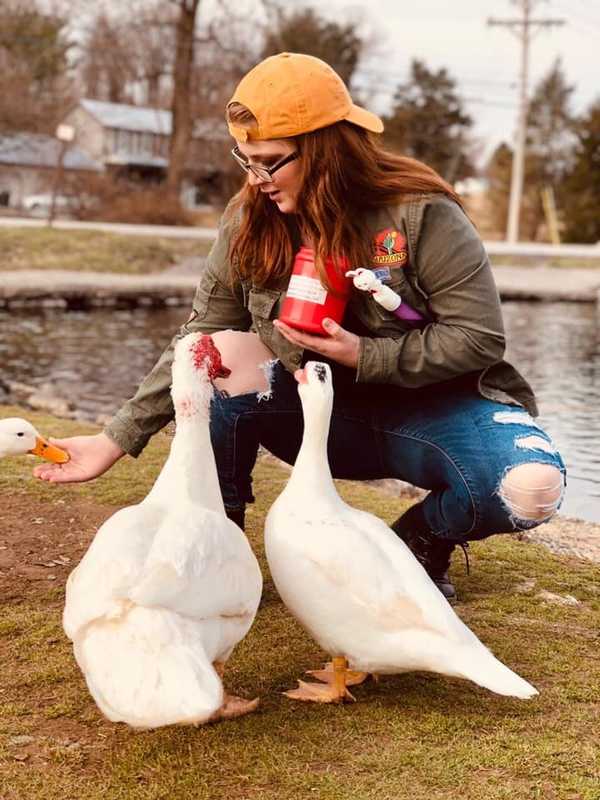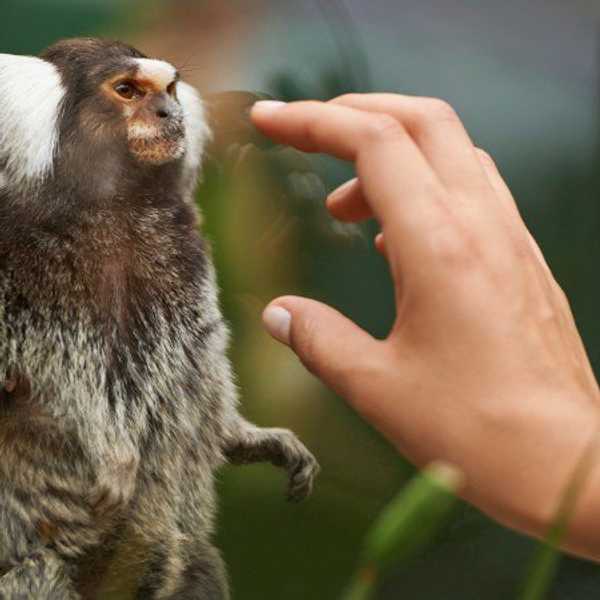One morning, I overheard a conversation about the genetic makeup of bananas. Apparently, humans share 50% of their DNA with bananas. One person jokingly asked if bananas had rights, because they were technically partially human. While most of them laughed it off, I did not. I wanted to investigate his question. Do bananas have rights? If yes, then does their environment have rights? What would banana rights include?
First, we have to determine if bananas do have rights. If we start from the basis that all humans have rights, and that anything human should be treated in just ways, then does that mean anything that shares DNA with us also has rights? Many argue that rights extend to animals already. This started with the animal rights movement in the 1970’s, and has since expanded to include more protections and rights for animals.
There are a few factors that would differentiate bananas from animals. First of all, bananas are not sentient. By this, I mean that they do not show preferences or interests. With sentient beings, we can usually tell that they have preferences, one being that they prefer to not be in pain. Bananas have not indicated to us that they prefer to not be consumed, because as far as we know, they are incapable of doing do.
There is also the factor that bananas cannot do much to alter their environment or move when they need to. Most animal species can migrate or adapt to changes in their environments directly. With bananas and their inability to move, they would have to adapt to a changing environment through reproduction. It should be noted that the banana has survived as a species for so long because of extremely selective breeding facilitated by humans.
Bananas are often prone to disturbances from insects and diseases because of their asexual reproduction. But, one has to wonder, if it were not for human interference, would bananas have survived through diseases and environmental changes? Or would the fruit cease to exist without humans? Its mass production today is thanks to human interference and manipulation of genes, so humans have played a large role in the continued existence of bananas.
It is clear, to at least some extent, that all living things have an evolutionary desire or preference to spread their genes and to provide for their own species. So with this, we could say that bananas have controlled humans instead of the other way around. Humans have helped the banana population grow to an extent they likely never would have reached naturally. Humans converted land for banana growth. The banana itself represents environmental, economic, social, and political issues, according to globalissues.org, which discusses the global trade of bananas and how their profit in supermarkets is a huge part of global food security.
Rebecca Cohen writes that bananas were “one of the first tropical fruits to be exported, [they] were a cheap way to bring ‘the tropics’ to North America and Europe.” This shows that bananas are not just a yellow, fruity snack, but they have political and economic importance and history in imperialism and colonialism that collected artifacts and food to bring back to monarchs and rulers. The Europeans were often the ones to make “discoveries” of other cultures. They then proceeded to exploit these new foods for their own purposes. It is easy for us to forget how colonialism affected our diets, but much of the food we eat is not food native to our locations. Spaghetti did not originate in Italy, potatoes did not come from Ireland, and fortune cookies did not originate from China.
But back to bananas. Since the spread of bananas from Southeast Asia and the South Pacific thousands of years ago, they have become a staple grocery item. We can always find bunches of bananas without much difficulty. So, if we think of bananas as part of us, since we share DNA with them, then does that not give us a moral obligation to not consume them? By that theory, we do not consume apes, chimpanzees, or other primates because they are so similar to us. The distinction, however, between sentient animals we do and do not consume is often blurred and rationalized to help us ignore animal suffering.
With bananas, we cannot truly know if they are suffering or not, so we must assume that they are not. This is our rationalization for eating bananas. It is acceptable to consume something that does not suffer for your benefit. With animals, we tend to rationalize their deaths by saying that death that provides food for people is acceptable, but ignore the obvious suffering and pain of animals such as pigs, chicken, and cows in factory farms. So with bananas, we can see no obvious preference to not experience pain and to not be consumed. We cannot say that it is immoral to consume other living things entirely, because that is how ecological systems function.
But, lets say that bananas do have rights, simply because they share DNA with humans. If we cannot ask the banana species what they want, then should we act to protect their environment, and pass on their genes to future generations of bananas? Does this then allow for banana consumption? We agree that animals have rights as sentient beings, for the most part, but if we extend rights to anything that shares DNA with humans, we basically have to extend rights to the entire Earth and all of its ecosystems. Taking this stance would not mean we could not consume any other creatures, necessarily. It would mean that humans would have to realize the rights of other species and their place in the world.
If bananas did have rights, the easiest way to apply those rights would be to protect their environment. However, this does not seem to be an issue at the moment while they are still massively produced for human consumption. As long as there is a demand for bananas in supermarkets and stores, there will be someone producing bananas. Therefore, as long as there is a demand for bananas, they will always have an environment.
But if we think beyond domesticated bananas and instead look to bananas in the wild, naturally growing and reproducing, we must think of the habitat and ecosystem they are part of. If we have to protect the environment of both domesticated and undomesticated bananas, then we must protect their ecosystems and ensure that biodiversity stays intact for their benefit.
Going back to DNA and rights, we would not be quick to say that anything that shares DNA with us automatically has rights. Instead, we would likely look at its value to humans, and what benefits it could bring to humans. If there are few, or if the benefits are not valuable enough, it is unlikely that that species or individual would not be protected or preserved.
In the end, I must conclude that, while it would be nice for bananas and their environments to have rights, they do not. With anthropocentric ideologies dominant in our society, expanding rights to the environment is not widely supported. More often than not, environmental protections focus on the well-being on humans and the continued existence of their genes. Furthermore, because bananas cannot explicitly express a desire to not be consumed, or a desire to not feel pain (because they cannot feel it, given that they do not have nervous systems), we do not feel obligated to protect the banana species beyond what benefits humanity.
This should help us to open up a conversation about what we consider in our environments to have rights, and if we as humans have obligations to protect, preserve, or repair species and habitats affected by our activities. The question of “do bananas have rights?” can easily be extended to “does the environment have rights?” in our current situation. Environmental rights is an extremely important issue today, especially because of climate change, climate refugees, and environmental racism and injustice. Before we can even begin to look at social, economic, and political issues, we must look at environmental issues to see if any problems can be prevented or aided through environmental preservation and protections. This is not to separate the environmental issues from other issues; they are all deeply interconnected and require our devoted attention as we move through these next years.





















